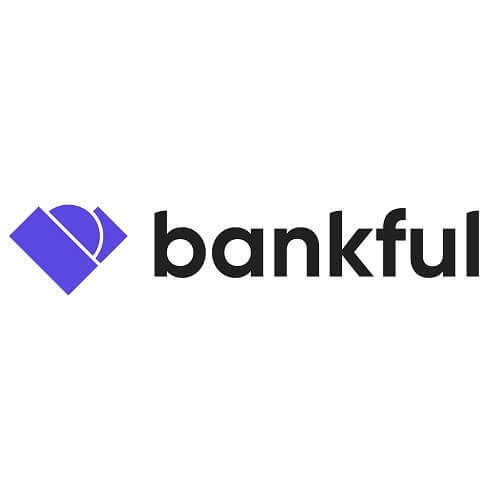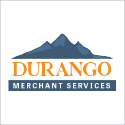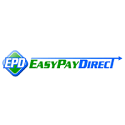Running Down Some of the Top Providers for High-Risk Merchant Accounts
It’s virtually impossible for eCommerce merchants to operate without accepting credit or debit cards. Before you can accept electronic payments, though, you need a payment processor. This is an entity that acts as a liaison between you, banks, and credit card networks.
Many processors prefer to do business exclusively with merchants whom they see as “safe” or “low-risk” investments. Businesses that are considered “high risk” will have a limited selection of potential processors to choose from.
Recommended reading
- Closed Merchant Account? Here's What to Do.
- Chargeback MATCH List | How it Works & How to Avoid Blackist
- What is the Amex Fraud Full Recourse Program?
- What are Merchant Monitoring Programs? Why Do They Exist?
- How the Terminated Merchant File Can Affect Your Business
- Merchant Account Reserves: What You Need to Know in 2025
What is a High-Risk Merchant Account?
- High-Risk Merchant Account
A high-risk merchant account is a subset of services that allow businesses in high-risk verticals to accept card payments from customers. These accounts typically come with stricter requirements and stipulations than standard merchant accounts and will be costlier to maintain.
[noun]/hī • risk • mər • CHənt • ə • kount/
Let’s say you want to open a new merchant account to accept credit card payments for your business. Any processor you approach will take a careful, detailed look at your business to determine if you fall under their definition of “high risk.”
High-risk merchant accounts are speciality services that certain payment processors offer to businesses that are more susceptible to chargebacks or fraudulent activity. Compared to standard merchant accounts, high-risk merchant accounts feature higher setup costs, steeper processing fees, and stricter contractual language. Adult entertainment, subscription services, and sellers that provide heavily-regulated services can all be considered high risk due to different factors.
In general, businesses seek out high-risk providers only if they are deemed ineligible for a standard merchant account. As we’ll discuss in the subsequent section, merchant service providers categorize businesses as either high-risk or low-risk based on factors like a seller’s processing history, financial position, line of business, and more.
What Makes a Business High-Risk?
A confluence of factors related to credit, location, vertical, transaction history, risk level, and more all determine whether a merchant is categorized as low risk or high risk.
To be clear, businesses that are deemed to be high-risk are not necessarily flawed or problematic. It simply means that acquirers and payment processors deem that particular seller’s activities to be too risky for the merchant provider to underwrite profitability using standard terms.
Processors assign merchants to one of two categories — “high risk” or “standard risk” — based on a number of factors. Ultimately, though, this determination is based on the degree of financial risk your company presents to the institution. Specifically, how susceptible you are to fraud and chargebacks.
Factors used to determine whether a merchant is high-risk or not include:
| Low-Risk Merchant | High-Risk Merchant | |
| Average monthly sales volume | Less than $20,000 | Over $20,000 |
| Average credit card transaction | Less than $500 | Over $500 |
| Different currencies accepted | One | Multiple |
| Offer recurring (subscription) payments | No | Yes |
| Placed on MATCH list/history of excessive chargebacks | No | Yes |
| Main product offering | Low risk: books, office supplies, clothing, home goods, etc. | High risk: software, digital, tickets, seasonal items, etc. |
| Based in or sell to a high-risk region (anywhere outside the US, EU, CA, JPN, or AU) | No | Yes |
Note that there is no middle ground here. Once a processor evaluates your business, they'll make an ‘either/or’ decision. In the processor's eyes, you're either high risk, or you're not.
What to Expect With a High-Risk Merchant Account
High-risk merchant accounts come with higher fees, stricter contracts, and tighter guardrails than standard merchant processing accounts.
Remember, the card networks’ main goals are to limit exposure to fraud and chargebacks. While being labeled a ‘high-risk’ merchant sounds bad, it really just means that your industry has been a known source of disputes and payment friction in the past. It’s not a personal indictment or a comment on the efficacy of your business.
That said, the privilege of accepting credit cards still comes at a price. And unfortunately, this means that the cost of doing business in a high-risk vertical can climb pretty high due to a number of factors:
Higher Costs
High-risk processors are willing to take on merchants turned away by other services. A few providers in this space even specialize in backing merchants that even other high-risk processors have turned down. Naturally, this accommodation comes at a cost.
Providers specializing in high-risk merchants typically charge higher-than-average fees and demand strict contract conditions. The contracts these companies require also tend to be more strict than conventional merchant processing agreements.
Risk of Signing With Predatory Operator
Unfortunately, not all service providers are ethical. Some may take advantage of high-risk merchants by charging junk fees, offering difficult-to-terminate contracts with unreasonable terms, setting unrealistic chargeback limits with harsh penalties if exceeded, or refusing to offer proper customer support.
Before you sign with any service provider, be sure to do research, check reviews, and look up reports from the Better Business Bureau and other advocate groups. Finally, always read the fine print (or better yet, get your attorney to read it).
Stricter Underwriting Processes & Monitoring
High-risk payment processors have stringent underwriting guidelines. They may request detailed information about your sales model, financial records, and records of compliance with industry regulations during the account application process.
A high-risk processor may regularly monitor your transactions for red flags. If your operations exceed a service provider’s risk appetite, you may be subject to longer fund hold times.
Revenue-Limiting Reserves
Account reserves are a way for the payment processor to hedge its bets. If something goes seriously wrong, the account reserve will insulate your acquirer from loss.
There are three basic types of reserves. First, an up-front reserve gives the processor permission to withhold all funds from credit card transactions until a reserve balance is met. With a rolling reserve, providers withhold a percentage of your daily revenue and hold it for a limited time, returning the money as other funds become available. Finally, there are fixed (capped) reserves, meaning the acquirer withholds funds up to a predetermined reserve cap. You can learn more about merchant account reserves here.
Benefits of High-Risk Processing
High-risk merchant accounts come with some benefits. They enable merchants to accept a broader variety of payments and may allow sellers to “budget” for anticipated chargebacks. Some high-risk service providers also offer complimentary fraud protection tools to merchants.
We won’t mince words: standard, low-risk merchant accounts are preferable to high-risk ones. But, we would be remiss not to highlight some unique advantages to having a high-risk account:
Wider Customer Base
High risk processors are more flexible and can allow merchants to accept cross-border payments. Sellers who use this feature to their advantage can reach a wider customer base and drive sales in countries or regions that were previously inaccessible. eCommerce businesses operating in niche or unproven verticals can also use high-risk accounts to strategically facilitate payments from their target customers.
Advanced Fraud Detection & Prevention
High-risk processors often implement robust fraud detection and prevention tools like machine learning algorithms, risk scoring tools or device fingerprinting, which you can use to your advantage to prevent chargebacks. Additionally, some processors offer educational resources on how to mitigate risks and chargebacks.
More Predictable Cash Flow
Account reserves tie up funds, but they exist for a good reason. An account reserve serves as a safety net and ensures there are available funds to sort out refunds or chargebacks. Without adequate reserves, merchants prone to chargebacks could be forced to draw up credit lines or overdraft their accounts — both scenarios that could put sellers in an even worse position.
Questions to Ask When Choosing a Provider
You should perform thorough due diligence before selecting a high-risk merchant account provider. This means asking tough questions surrounding the provider’s:
Top High-Risk Merchant Account Providers of 2024
So, you need help from one of these service providers. Where should you start your search, though?
Not to worry. We’ve already done the work of compiling some of our “best of the best” service providers for the high-risk space. We referenced our own internal data and historical pricing information, as well as reviews and product listings from G2 and Forbes to compile our “Best High-Risk Processors of 2024” list. Entries are listed in alphabetical order:

Bankful
Bankful offers high-risk merchants fast approvals and instant access to processing, backed by industry-leading chargeback management tools like real-time alerts, Visa RDR, and streamlined representment. With advanced tech and seamless integrations, Bankful is a tech-forward, high-risk payment processor.
Partial List of Verticals & Product Focus:
Adult entertainment, CBD products, cryptocurrencies, cannabis products, gambling, travel, pawn shops, smoking accessories, subscription billing, BNPL
Bankful Pricing:
Bankful offers flexible monthly plans designed to fit businesses of all sizes and risk levels:
- Basic: $0/month. Includes credit card processing & chargeback management%
- Plus: $25/month. Adds digital wallets, eCheck, fraud protection, email/SMS invoicing, QuickBooks, chargeback management
- Premium: $95/month. Includes everything above, plus crypto, subscriptions, customer assistance fee, and chargeback management
- API Concierge: $495/month. Includes above, and adds in a dedicated Slack channel with 24-hour turnaround, one hour of Google meetings per week, and API access.
Credit card processing fees are competitive and vary depending on the business type and risk profile.
Pros:
- Wide range of integrations
- Excellent customer service
- Transparent pricing
Cons:
- Monthly fees in higher service tiers
- Limited subscription management features
- Only works for merchants based in US

Durango Merchant Services
Durango Merchant Services is highly regarded for its exceptional customer support. They specialize in finding accounts for merchants with poor credit or excessive chargebacks. Durango supports transactions in various currencies, including crypto. The company also offers fraud protection and gateway integration.
Partial List of Verticals & Product Focus:
International, offshore, credit repair, bad credit, vaping & supplies, fantasy sports, nutraceuticals, MLM, membership/subscription, travel, dating
Durango Merchant Services Pricing:
While Durango does not advertise its pricing, custom quotes show that the monthly fee starts at $10 and access to the payment gateway can cost an additional $10–$15 per month.
Pros:
- Serves high-risk companies globally
- Offers fraud protection services
- Supports processing for cryptocurrency transactions
- High customer reviews
Cons:
- Fee details only available by quote
- Monthly fees and minimums
- Doesn’t support all high-risk businesses

Easy Pay Direct
Easy Pay Direct offers an exclusive payment gateway designed to be user-friendly. The company’s unified solution handles high-volume transactions and multiple merchant accounts through a single payment gateway. They also offer unlimited transactions for high-value purchases and have high customer feedback.
Partial List of Verticals & Product Focus:
Information products, supplements, CBD, SaaS, general eCommerce, MLM, adult industry, nutraceuticals, alcohol, firearms & ammunition, high-ticket
Easy Pay Direct Pricing:
There are no specific fees available, but historically there has been a one-time $99 setup fee, and monthly account fees starting at $24.95/month.
Pros:
- Transparent pricing
- Free virtual terminal
- Extensive third-party integrations
Cons:
- US & Canada only
![]()
Fasto Payments
Fasto Payments provides an "all-in-one" solution for high-risk merchants. They connect customers with over 100 different card processors, offering chargebacks alerts, cryptocurrency processing, and more than 20 alternative and local payment methods. They also provide live 24/7 support for customers.
Partial List of Verticals & Product Focus:
Adult entertainment, CBD products, cryptocurrencies, dating, financial services, gambling, gaming, hospitality, travel.
Fasto Payments Pricing:
Fasto has no online pricing information.
Pros:
- “All in one” services
- 24/7 customer support
- Chargeback alerts
Cons:
- Website does not disclose pricing
- Website does not disclose pricing

Inovio
Inovio emphasizes the flexibility and seamless integration of their platform, which works with multiple payment technologies. Their platform combines essential features with extensible data and clean interface to make the gateway experience frictionless.The platform also includes adaptable APIs.
Partial List of Verticals & Product Focus:
Adult, bail bonds, coaching, collections, dating, eBooks, fantasy sports, firearms & ammunition, gaming, nutraceuticals, telemedicine, travel.
Inovio Pricing:
For the most part, Inovio does not publish rates on their website. They do mention a separate fee schedule that is available once terms have been negotiated. This suggests a tiered or tailored pricing model.
Pros:
- Quick setup
- Dedicated relationship manager
- Ability to keep cards on file
Cons:
- Fees aren’t listed online
- Early termination fee
- Limited integrations

Instabill
Instabill specializes in international high-risk accounts which can be set up to accept over 150 major currencies. Other services include EMV card readers and swipers, mobile payments, and ACH processing, plus eCommerce solutions including virtual terminals and payment gateways.
Partial List of Verticals & Product Focus:
Adult, bail bonds, dating, CBD/hemp, gaming, gambling, financial consulting, vaping/eCigarettes, nutraceuticals, telemedicine, travel.
Instabill Pricing:
Instabill offers a Merchant Account Fees page explaining why it can’t give you a firm quote without more information. Instabill does not require a fixed contract length.
Pros:
- Fast application process
- Highly rated tech support
- Fraud prevention tools
Cons:
- Costs may be higher than other providers
- Typically requires a rolling reserve
- Higher termination fees and fees for withheld funds

PaymentCloud
PaymentCloud is another high-risk processor known for exceptional customer service, with direct involvement and guidance both during and after onboarding. The company can process payments via credit card, ACH, eCheck, or cryptocurrency, as well as a range of transaction modes.
Partial List of Verticals & Product Focus:
CBD oil, firearms & ammunition, adult entertainment, credit repair, bad credit, vape/eCigarettes, airlines, tax preparation.
PaymentCloud Pricing:
PaymentCloud doesn't offer a uniform fee structure like many providers catering to high-risk merchants. You’re likely to have a monthly minimum processing charge of around $25, but minimal other fees compared to some other providers.
Pros:
- Dedicated account manager
- Same-day setup
- No cost-credit card processing
Cons:
- Fees aren’t listed online
- Monthly volume limit
- Not for Ultra High Risk
PayKings
PayKings offer affordable merchant services, online credit card payment processing, and multiple other services to help merchants get sustainable payment processing in high risk industries. All offerings can be seamlessly integrated with the merchant’s existing platform.
Partial List of Verticals & Product Focus:
Adult entertainment, CBD, credit repair, firearms, hemp, nutraceuticals, travel, vape/eCigarette, pawn shops, collectables, dating.
PayKings Pricing:
PayKings provides customized pricing for each merchant individually. The company advertises rates “as low as 2.49%,” which usually implies tiered pricing. Amounts will vary depending on volume and vertical.
Pros:
- No setup or application fees
- Multiple currency options
- Some chargeback protection offered
Cons:
- No clear prices on website
- Early termination fee
- Some complaints of slow response
Payline
Payline believes in transparency. They were the first company to display merchant processing fees directly on their website. The company’s omnichannel solutions provide options for businesses across all industries and sizes, tailored to fit individual needs.
Partial List of Verticals & Product Focus:
Businesses with long delivery times, credit & debt relief, medical marijuana, retail cannabis, tobacco/vape, travel.
Payline Pricing:
Payline uses an “interchange plus pricing” plan due to its transparency. Customers can take advantage of the wholesale rates set forth by the card brands. Payline then adds a small service fee.
Pros:
- Competitive, transparent pricing
- No cancelation fee
- Dedicated account managers
Cons:
- Occasional complaints of unexpected fees
- Monthly fees
- Need separate plans for in-person vs. online processing
Soar Payments
Soar Payments specializes in payment solutions for hard to place merchants, especially those labeled “high risk.” The company offers merchant accounts, ACH, payment gateway, and related payment technology, along with competitive pricing, a straightforward application procedure, and outstanding customer service.
Partial List of Verticals & Product Focus:
Antiques & collectibles, CBD products, subscription/recurring payments, credit repair, fantasy sports, firearms, travel, MLM, nutraceuticals, SaaS
Soar Payments Pricing:
Soar keeps their customer fees private, but provides instant online quotes, with no offline paperwork. Online quotes are based on “industry minimum” pricing that eliminates haggling.
Pros:
- Instant online quotes
- Robust customer support based in the U.S
- Responsive customer service
Cons:
- Not global
- Does not work in certain verticals
How High-Risk Merchants Can Fight Back Against Chargebacks
Even with all the downsides, some merchants prefer—or at least are willing to accept—working with a high-risk merchant account. Many verticals represent significant earning opportunities if you’re willing to accept the higher risk and profit withholdings that come with them.
There's another appealing element of high-risk accounts to consider as well: limited chargeback penalties. Providers are less likely to close a high-risk account because of excessive chargebacks, which is why many merchants end up seeking high-risk merchant processing in the first place. Maintaining a high-risk merchant account may be costlier, but it’s a reliable way to ensure business sustainability in the face of rising chargeback issuances.
That said, if you are experiencing a high rate of chargebacks or are looking to lower your chargeback ratio to avoid higher costs…there is an alternative.
Chargebacks911® enables sellers in all MCCs, sales models, and product verticals to increase profitability. We help standard merchants avoid excess chargebacks and help high-risk merchants recoup revenue that would otherwise be lost to fraudulent chargebacks.
Contact us today for a free, no-obligation chargeback analysis and learn exactly how much you could be saving.
FAQs
What is a high-risk merchant account?
A high-risk merchant account is a subset of services that allow businesses in high-risk verticals to accept card payments from customers. These accounts typically come with stricter requirements and stipulations than standard merchant accounts and will be costlier to maintain.
What is considered a high-risk transaction?
A high-risk transaction involves a higher probability of fraud or chargebacks, often occurring in industries known for their regulatory issues, financial instability, or the likelihood of disputed purchases. This can include transactions in sectors like adult entertainment, gambling, and eCommerce.
What are the rates for high-risk merchant accounts?
Providers specializing in high-risk merchants typically charge higher-than-average fees and demand strict contract conditions. A few providers specialize in backing merchants that even other high-risk processors have turned down. Naturally, the fees and contracts these companies require tend to be more strict than conventional merchant processing.
Is high-risk payment processing legit?
Yes. Even with all the downsides, some merchants prefer — or at least are willing to accept — working with a high-risk merchant account. Many verticals represent significant earning opportunities if you’re willing to accept the higher risk and profit withholdings that come with them.
Why do you need a high-risk merchant account?
You might need a high-risk merchant account if your business operates in an industry prone to high chargeback rates, has a history of financial instability, or deals with high-value transactions. These accounts are specifically designed to manage the increased risk and provide the necessary support to process payments securely, despite the challenges inherent to your business sector.
















